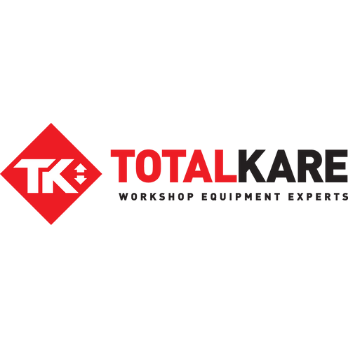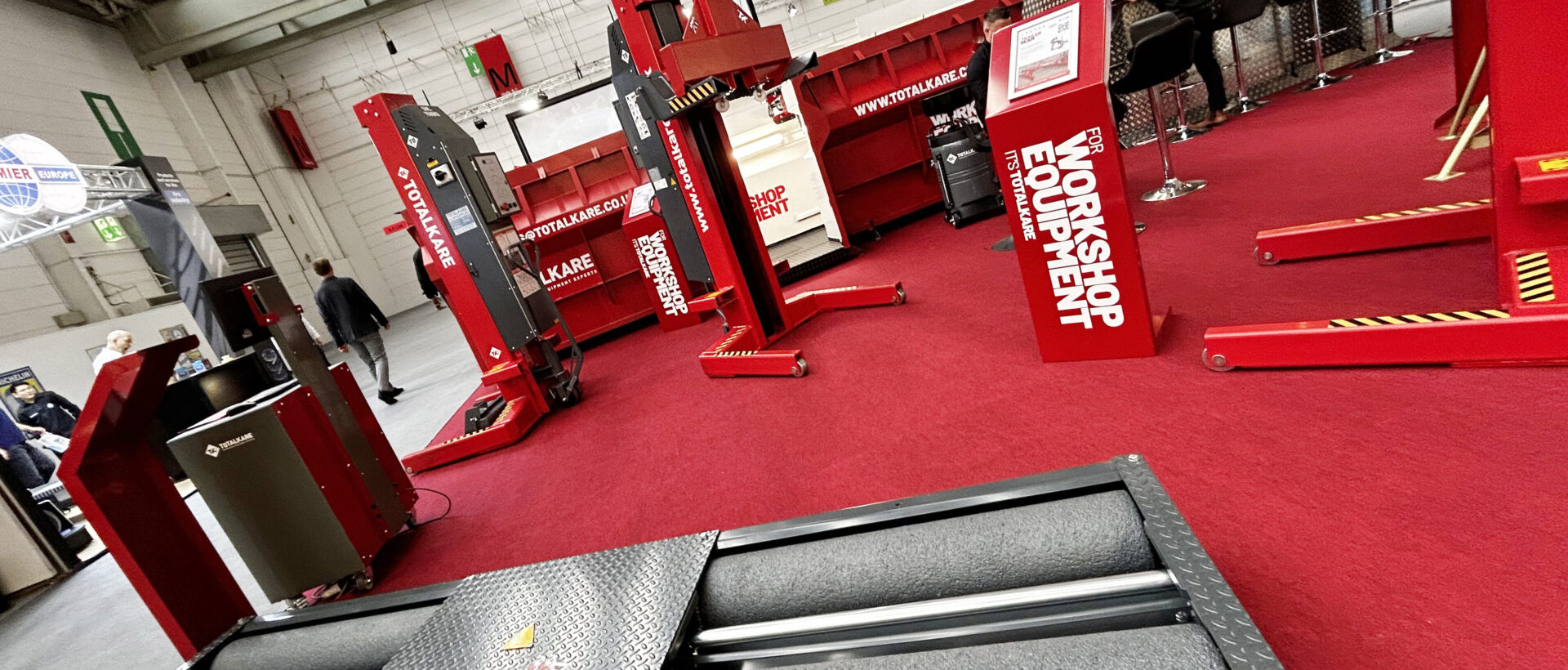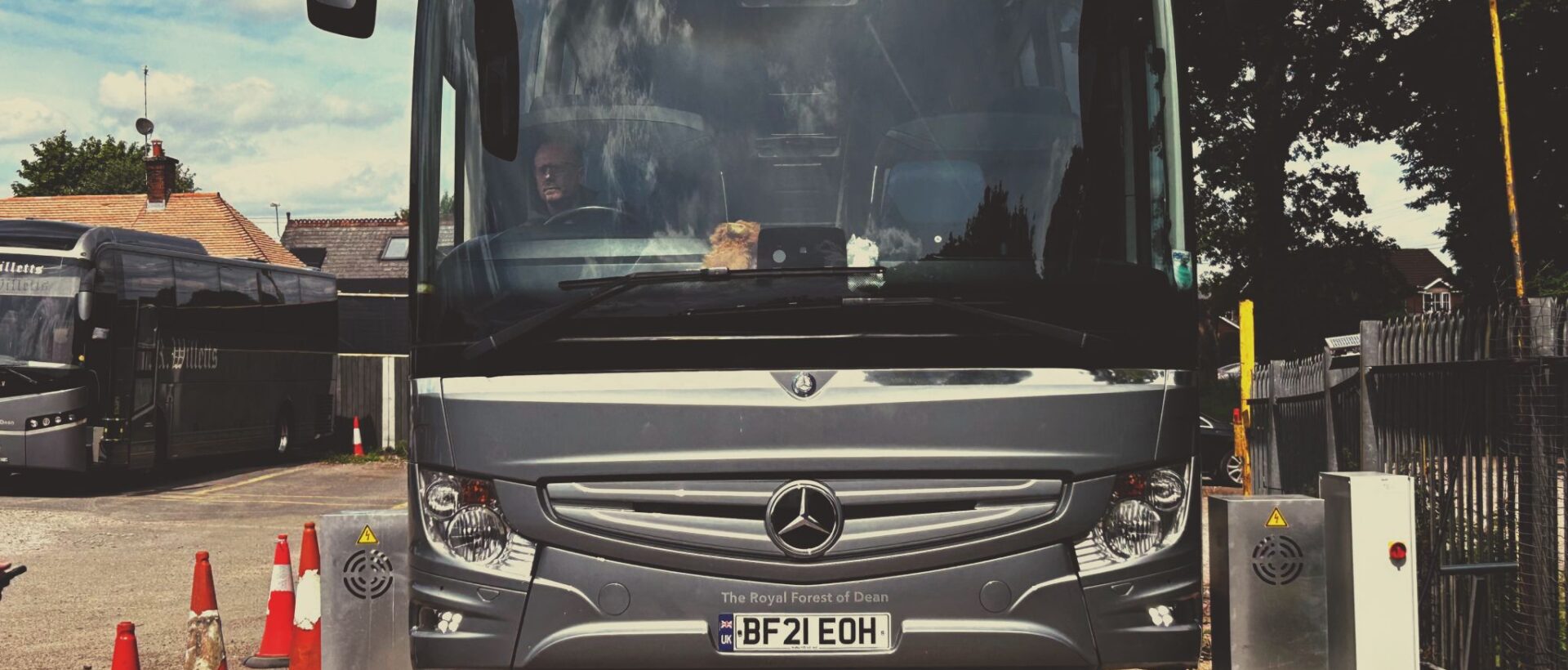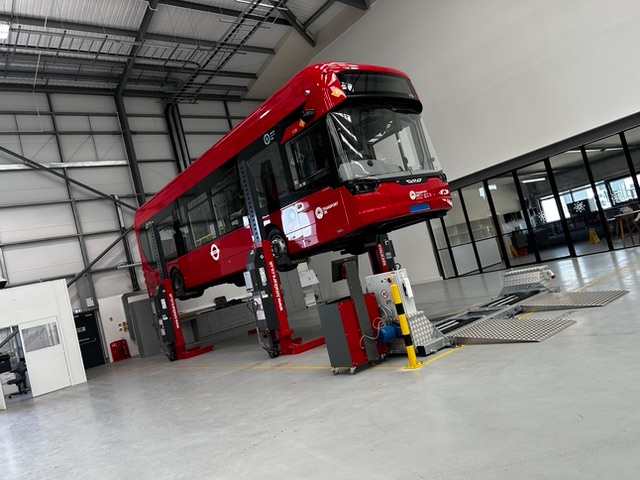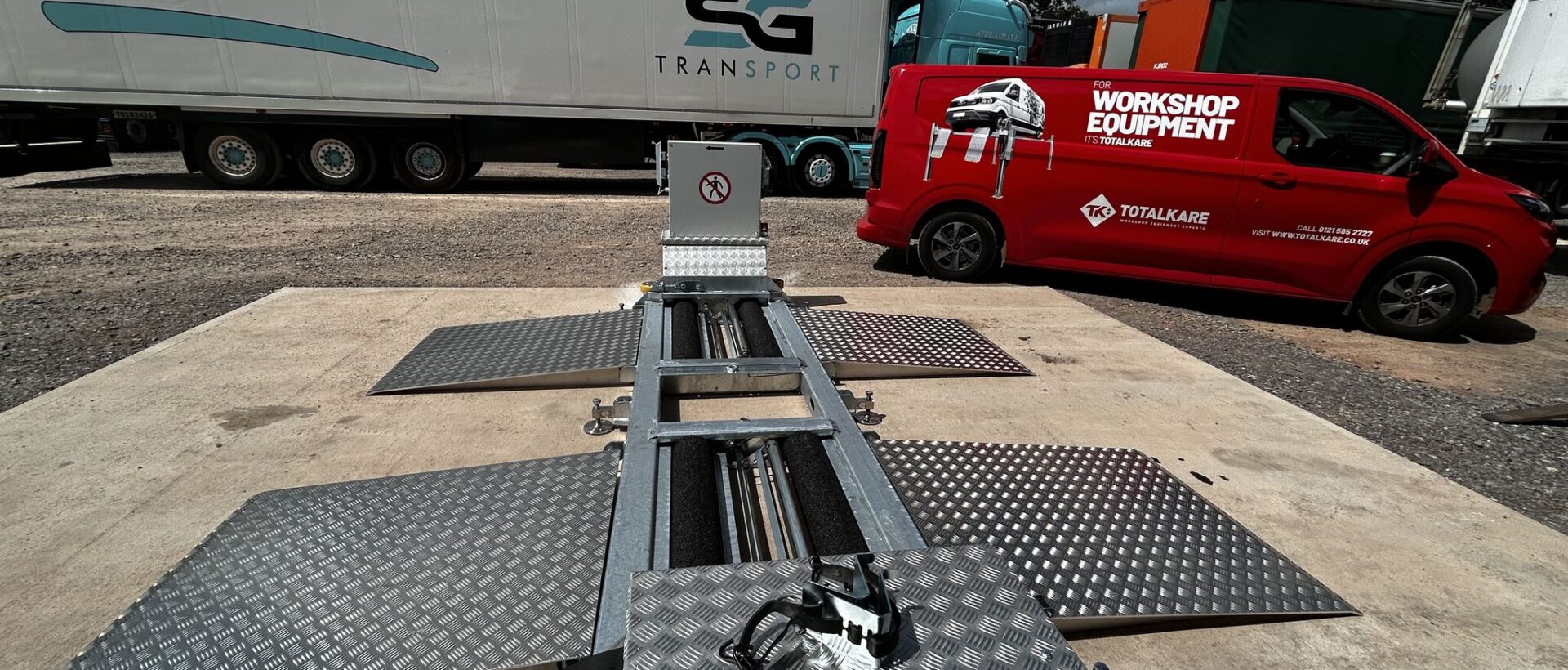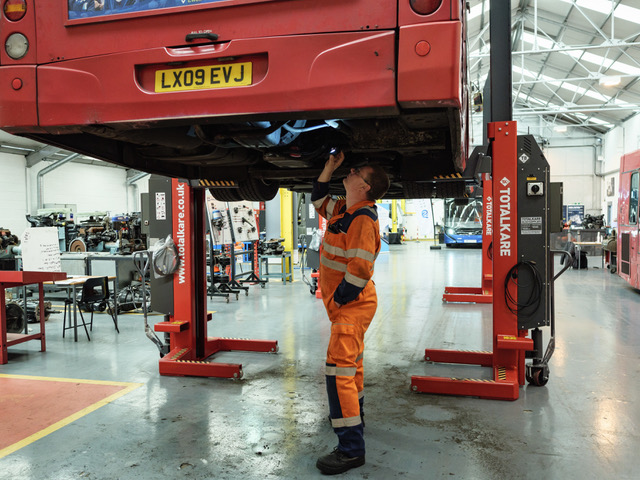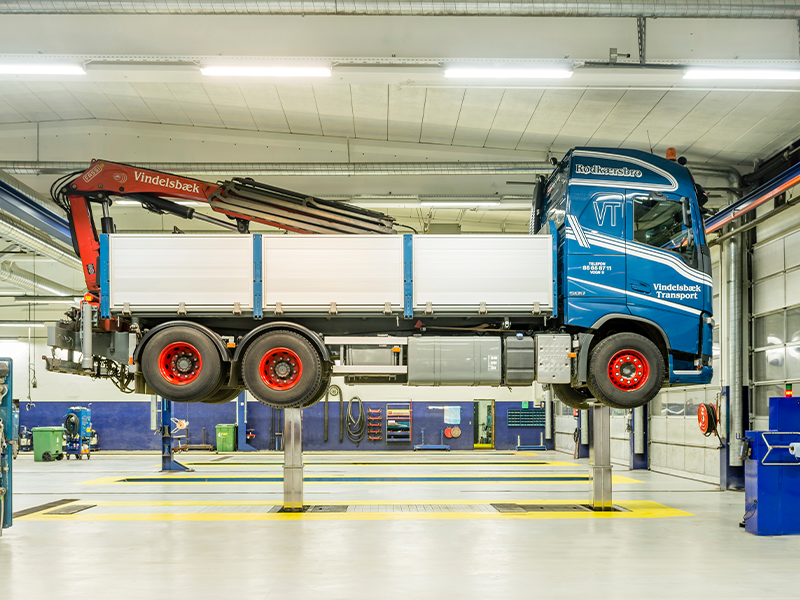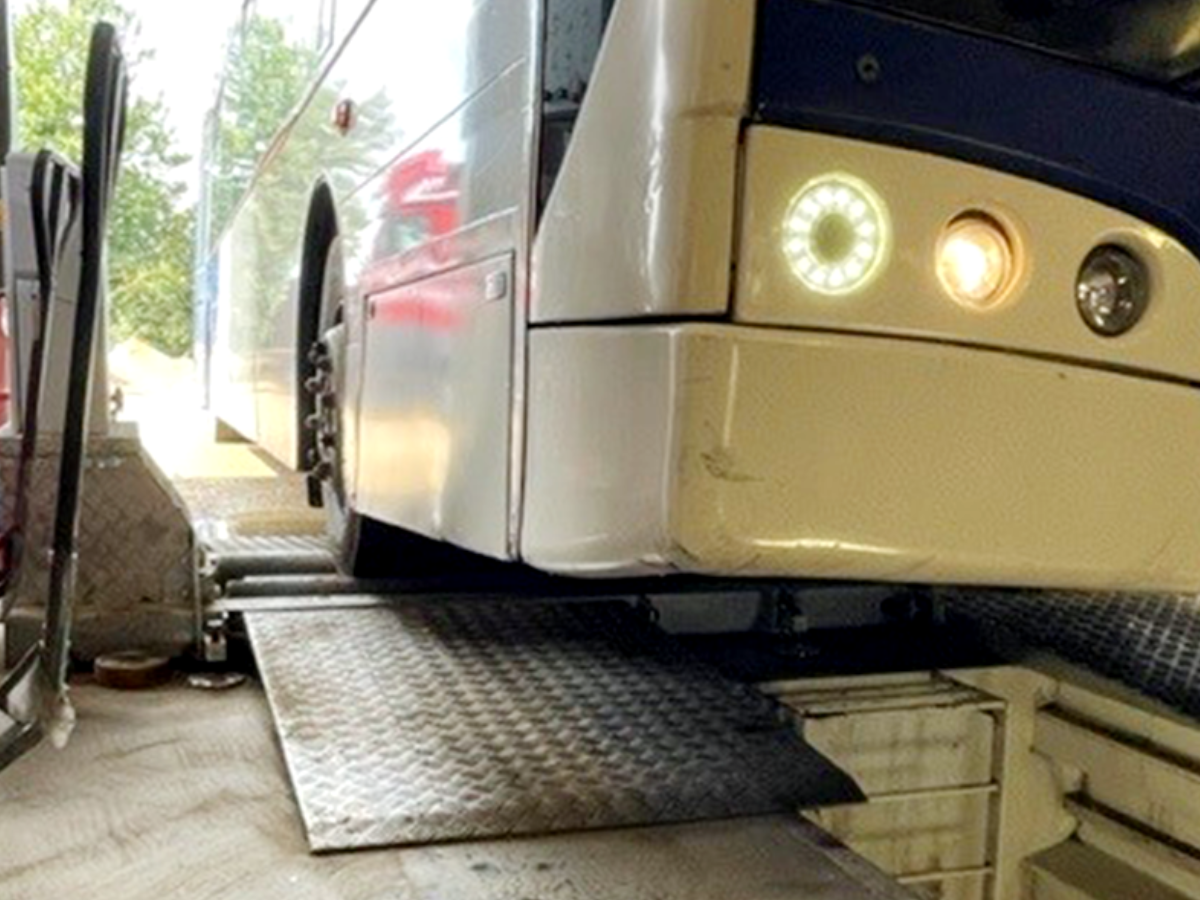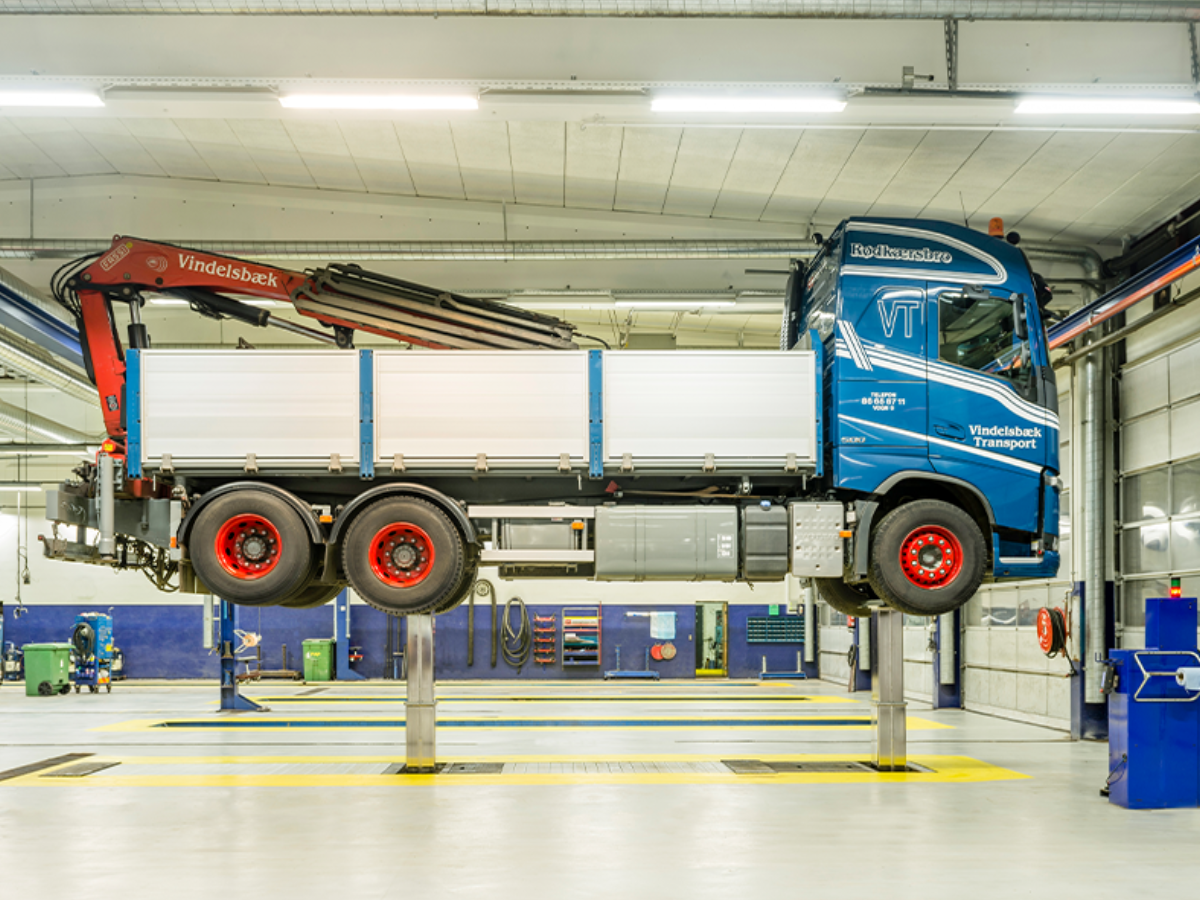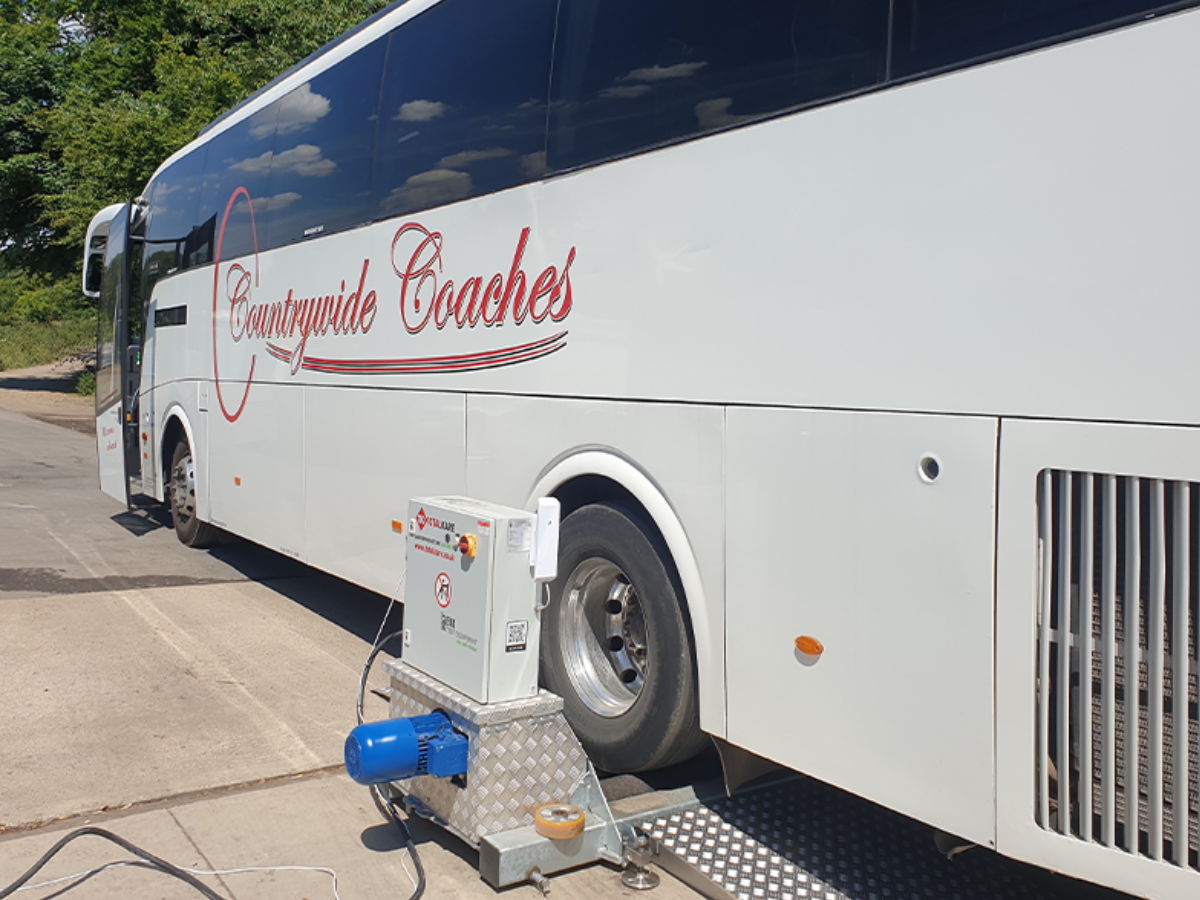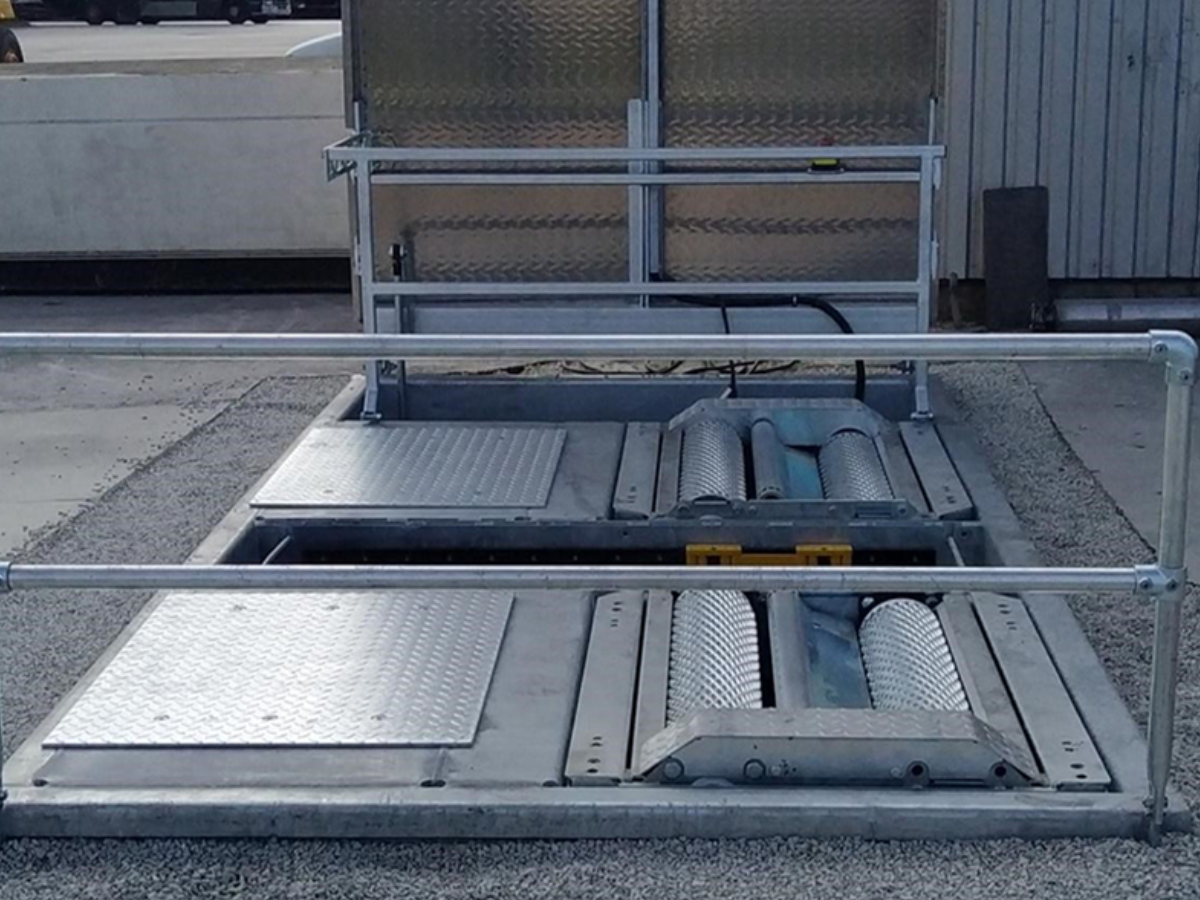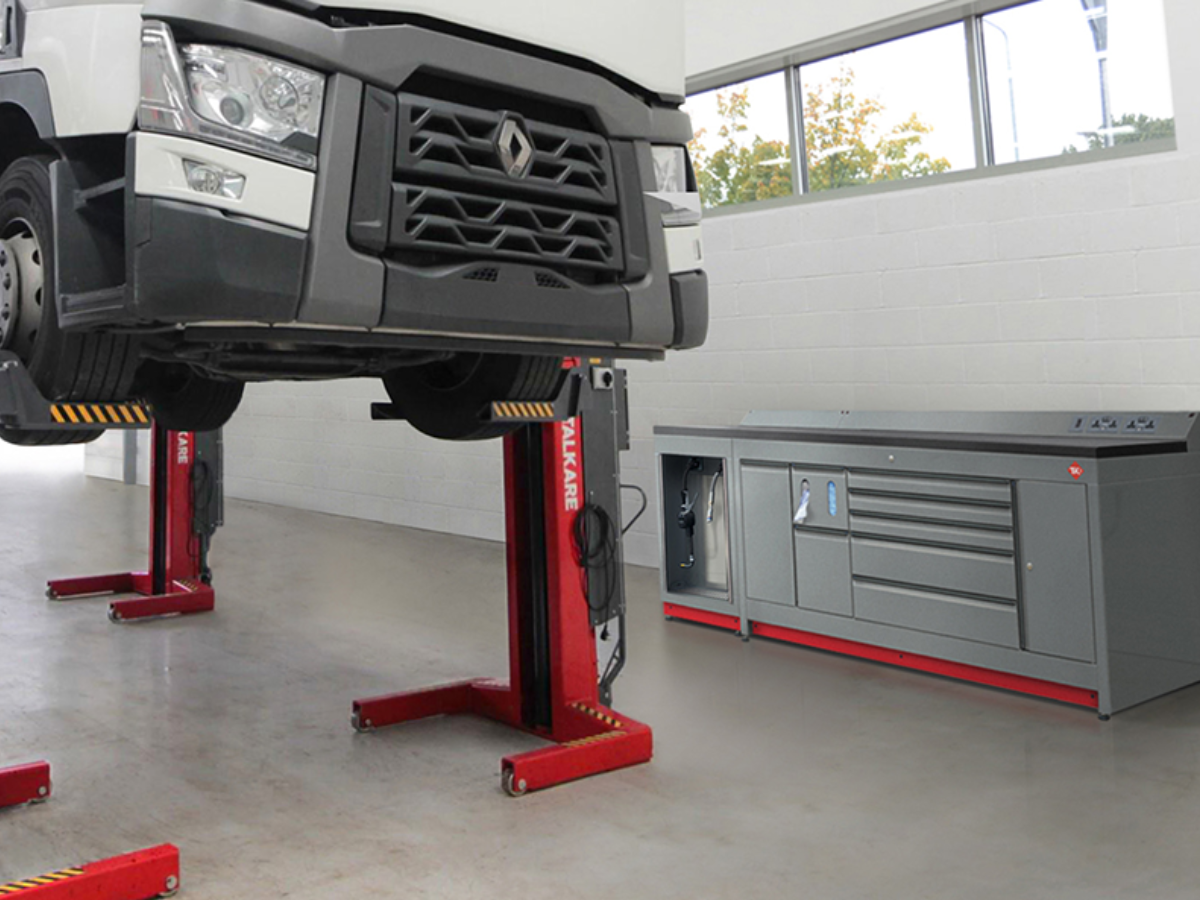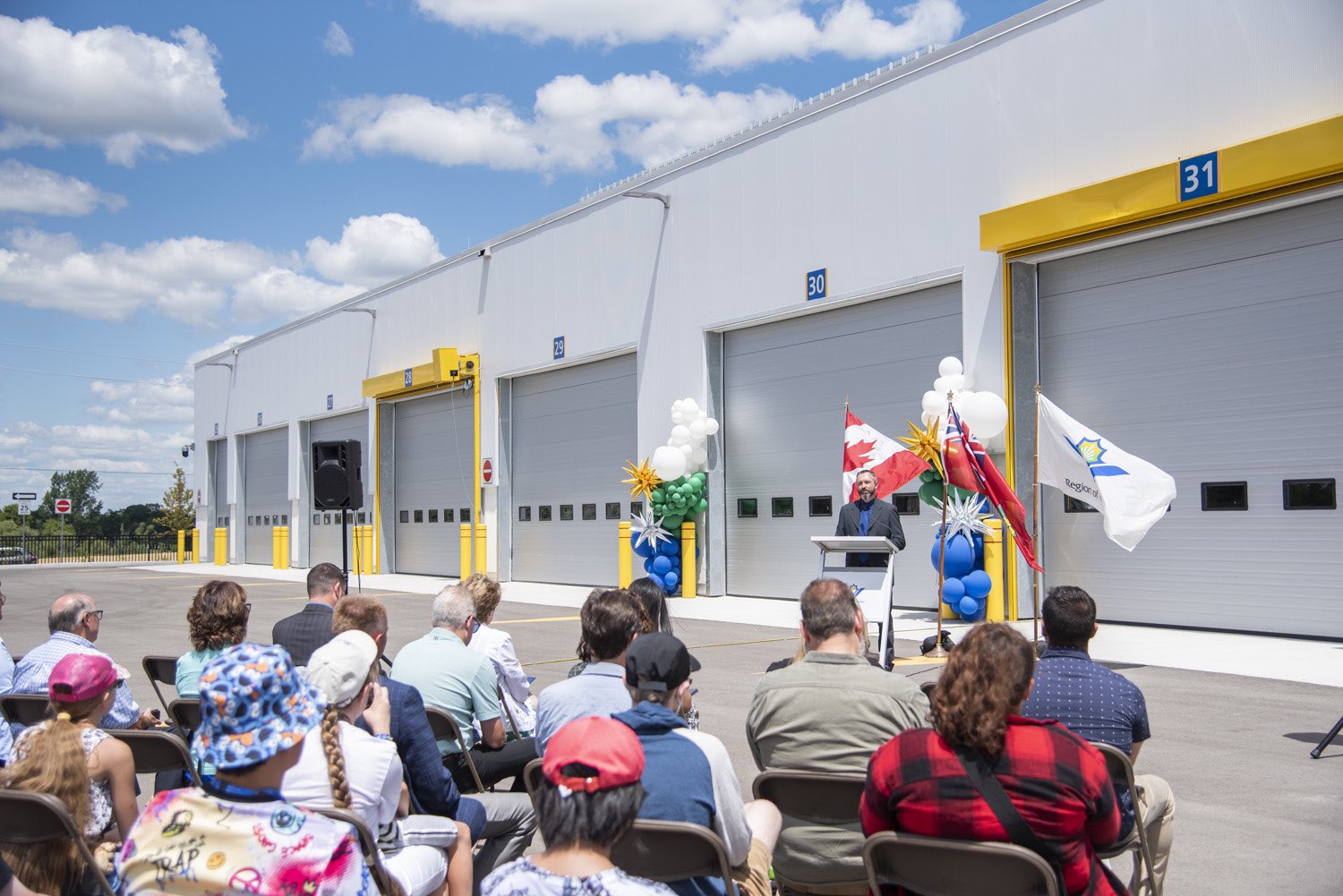If you’re looking to invest in a brake tester for your workshop, it’s not always easy to sort through your options.
So to make things easier, we’ve put together a rundown of our two most popular bits of kit – the In-Ground Brake Tester, and the Mobile Brake Tester.
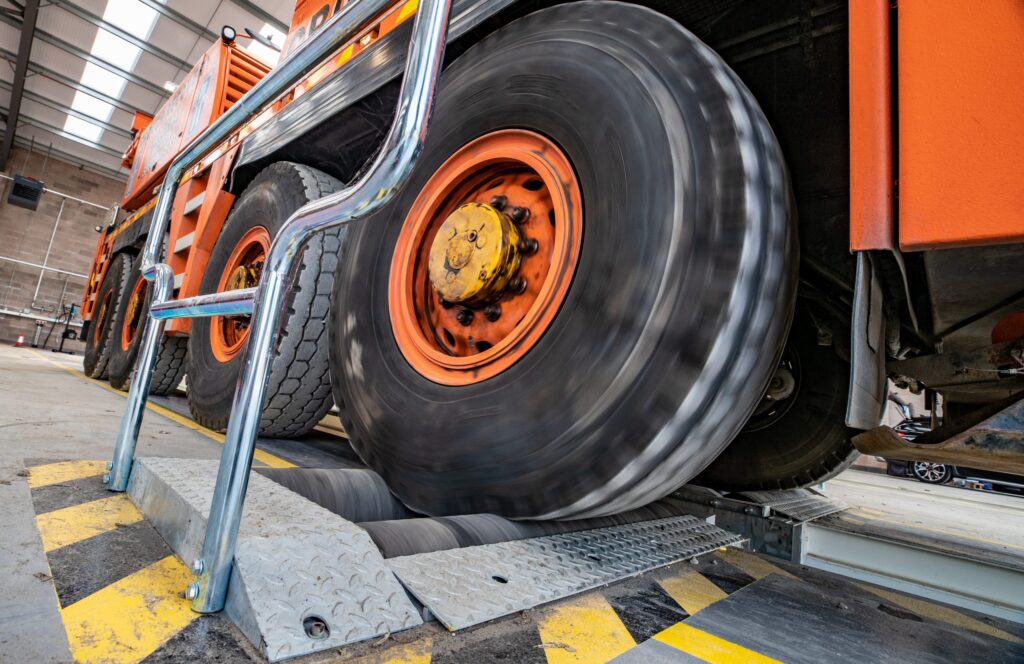
But before we dig into the differences between them, we need to talk about what they have in common.
Whether you choose an In-Ground Brake Tester or a Mobile Brake Tester, you’ll be getting:
- A brake tester that’s DVSA-approved and Connected Equipment-ready
- Handheld wireless tablet controls – so you can perform the test alone from the driver’s seat
- A maximum axle load of 20,000kg (if you choose the upgraded Mobile Brake Tester)
- Bi-directional rollers (if you choose a customised In-Ground Brake Tester)
- And options for axle load simulation and tachograph calibration.
Now that we have a baseline for both, we’re ready to look at how they differ.
Here are the questions every workshop needs to ask.
1. Is Floor Space an Issue?
In almost every workshop, floor space comes at a premium. And it’s likely to be a huge factor when choosing workshop equipment.
But when it comes to choosing a brake tester, the answer isn’t always black and white:
In terms of raw area, an In-Ground Brake Tester is usually a smaller piece of kit. Because it’s a fixed installation that’s securely attached to the floor, it doesn’t need to be spread out to have the same stability.
A Mobile Brake Tester usually covers a bit more floor space. Because it sits above the ground, it needs longer ramps to get the vehicles up onto the testing area, and these extended ramps add to the total area it covers.
But for each option, there’s a little more to it than that:
An In-Ground Brake Tester can be fitted onto an existing pit or ATF lane. So in terms of floor space, it’s only a small addition to an area of your workshop that’s already occupied – which means you’re making more efficient use of a space that’s already being taken up.
And while a Mobile Brake Tester may be larger, it’s also removable and flexible. On the days when you don’t need it, you can take it elsewhere or put it in storage – freeing up extra space that you can use for other equipment or activities.
Therefore, when you’re choosing a brake tester based on space, it really comes down to your current workshop setup, and how often you need to perform brake tests.
Which brings us nicely onto the next question.
2. Does Your Workshop Already Use a Pit?
Some businesses swear by their Vehicle Inspection Pits – and some workshops get by just fine without one.
And because an In-Ground Brake Tester can be fitted over an inspection pit, that can make it more attractive for workshops that use them.
But it’s not just about saving floor space (although that is a huge factor).
It’s also about efficiency and productivity – minimising the movement of your vehicles and completing as many jobs as possible in a single location.
With an In-Ground Brake Tester installed over a pit, you won’t need to reposition your vehicles when it’s time to switch jobs. You can work on the chassis below the vehicle, and then move straight to brake testing – all in one place, with a dedicated workstation that covers multiple tasks.
3. Do You Test Brakes Every Day?
Our Mobile and In-Ground Brake Testers are both perfect for everyday use. That’s what they’re built for, and that’s how our customers use them.
But if you’re running a workshop that rarely performs brake tests, you might not need a fixed installation taking up space that’s not always in use.
With a Mobile Brake Tester, you don’t need to keep it in place every day. You can keep it in storage (or even at another premises), and only bring it out for the infrequent occasions where you need to test brakes.
And when it’s out of the way and not in use?
You’ve got a whole new section of your workshop ready and available. So you can set up different equipment, position new vehicles to improve your through-put – or open up new routes through your workshop to make life easier for your staff.
4. Does Your Workshop Use an Outdoor Space?
We’ve already mentioned how space comes at a premium. And for some workshops, that means moving some jobs to an outside area.
Your premises might come with an expansive loading bay or courtyard – and if it’s not being used for anything, it makes sense to start putting it to good use.
It’s unlikely that you’ll have a vehicle inspection pit outdoors (unless you’re talking about our galvanised Compact Pit and Brake Tester).
But if you’re looking to get more out of an outdoor space, and you’re about to invest in a brake tester, our Mobile Brake Tester could be the perfect choice.
Made of fully galvanised metal, it’s designed for use outdoors in all types of weather. And with its adjustable feet, you can use it on all types of outdoor surfaces – from concrete and asphalt to uneven sand and gravel.
So, if you’re running a workshop that makes use of an outdoor space, a Mobile Brake Tester can help you free up more space indoors, service more vehicles per hour, and increase flexibility when adapting to unexpected changes in your workshop’s schedule – which can all give you a sizeable boost to your productivity and efficiency.
5. Do You Ever Change Your Workshop’s Layout?
No matter how carefully you’ve planned your workshop, there’s almost always room for improvement.
And especially if you’re a younger business that’s set to grow and expand, it’s important to have options that can help you stay flexible in your workplace.
With an In-Ground Brake Tester, you’re already saving space with a smaller installation – and if you’re fitting it over a pit or ATF lane, you’re automatically maximising the space that you’re using.
On the other hand, with a Mobile Brake Tester, you’ve got an extra level of flexibility: with the potential to rearrange the layout of your workshop as the needs of your business change.
That could mean opening new routes through your workshop, allowing more vehicles to drive through and access different workstations more easily.
Or it could mean that when you change contracts to a new customer – one that doesn’t need any brake testing for its vehicles – you can close your brake-testing facilities and literally wheel them out of sight.
With this added layer of flexibility, you can make sure you’re using every inch of your workshop to its full capacity, maximising the number of vehicles you service and making the most of your entire premises.
Still Not Sure What’s Right for You?
A brake tester is a big investment – and that means you need to be sure you’re making the best decision for your business before you buy.
So if you’re looking to learn more about the options you have, check out our full range of Brake Testers in our online shop – or chat to one of the Totalkare team, and we’ll help you find the equipment that fits what you need.
This article was originally published by Totalkare Ltd.

